Why Does My Dog Pee on His Blanket? Solving the Mystery
It’s a common sight for dog owners – you walk into the room only to find that your beloved pup has peed on their blanket. As frustrating as this can be, understanding the possible reasons behind this behavior is crucial to addressing and correcting it.
There could be several factors contributing to your dog’s unexpected urination on their blanket, such as medical issues, territorial marking, or emotional inconsistency.
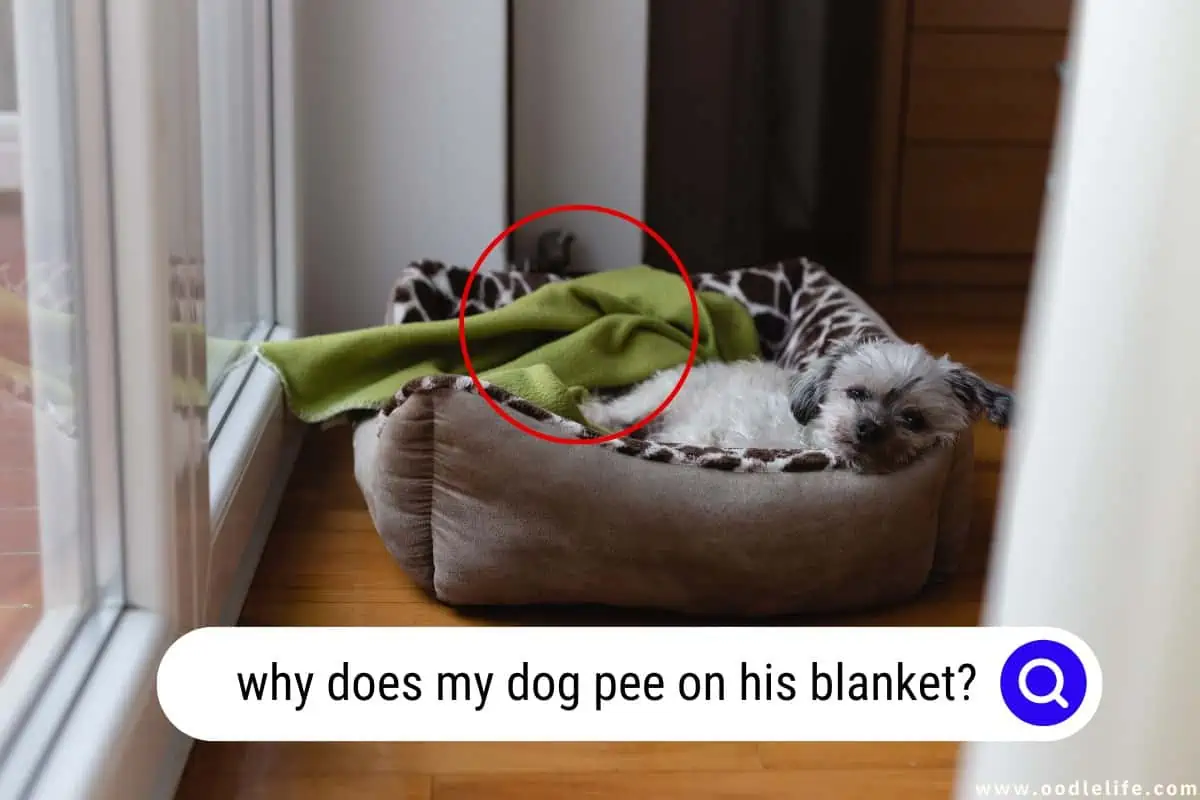
By examining these elements and considering your dog’s specific circumstances, you can identify the cause and implement an effective solution to keep your home pee-free and your pet happy.
Possible Reasons for the Behavior
Marking Territory
One possible reason for a dog peeing on its blanket is to mark its territory. Dogs have a natural instinct to claim their space, and blankets can be seen as an extension of that. For example, a dog might pee on a new blanket to assert its ownership and signal to other dogs that this is their space.
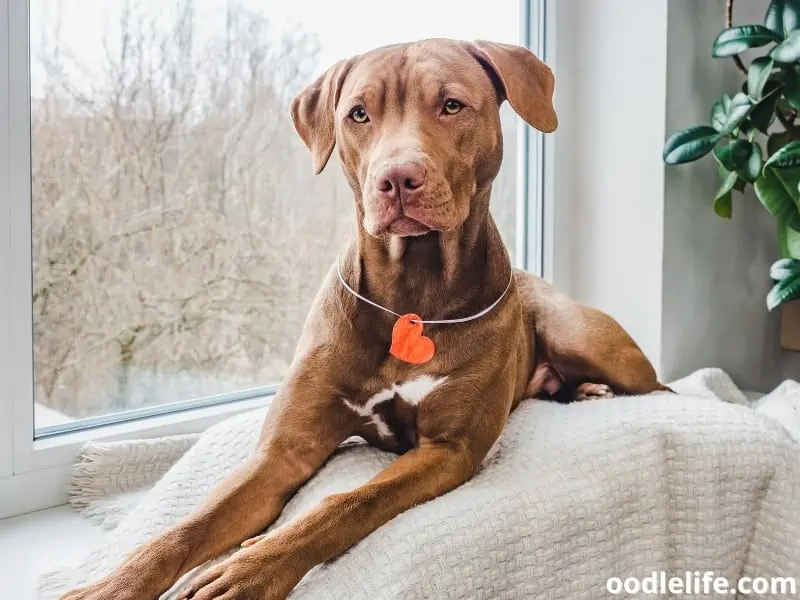
Anxiety and Stress
Another reason why a dog might pee on its blanket is due to anxiety and stress. Dogs can experience emotions such as fear, nervousness, and separation anxiety, which can lead to them peeing on their blankets. For instance, a dog left home alone while its owner is at work might feel stressed and urinate on its blanket as a coping mechanism.

Medical Issues
Dogs may also pee on their blankets due to medical issues, such as urinary tract infections, diabetes, or kidney disease. These medical conditions can cause increased thirst and more frequent urination. For example, a dog with diabetes might consume more water than usual and be unable to hold its bladder for long, resulting in peeing on its blanket.

Submissive Urination
Finally, submissive urination could be another factor in a dog peeing on its blanket. Submissive urination is a way for dogs to show submission to dominant individuals or other dogs. In this case, a dog might pee on its blanket as a sign of submission to a new owner or another dog in the household.

This behavior is often seen in puppies and timid dogs that are trying to adapt to their new environment.
Understanding Canine Communication
Ever wonder what your furry friend is trying to say with all those wiggles, sniffs, and woofs? Decoding your dog’s body language is essential for understanding their needs and emotions. They use various body parts, like posture, facial expressions, and even tail wagging, to convey their feelings.
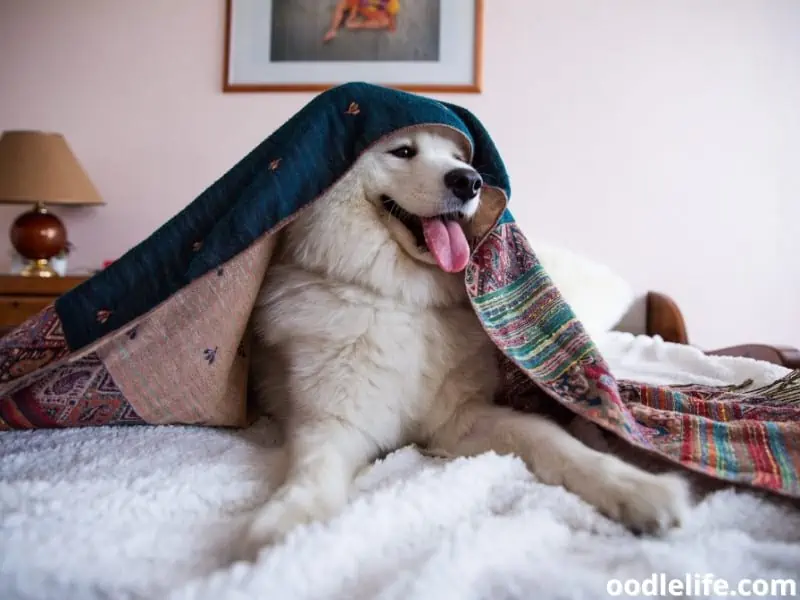
For example, when a dog’s ears are pulled back and their tail is wagging low or between their legs, they might be feeling uncomfortable or frightened. On the other hand, a more relaxed, confident pup will hold their tail high and wag it briskly, and their ears will be alert and up.
A dog’s eyes can also tell a story. If they avoid eye contact or show the whites of their eyes, they might be anxious or tense. In contrast, soft, gentle gazes usually reflect a calm or loving demeanor.
Let’s not forget our dogs are territorial creatures by nature. Marking their favorite blanket with a quick tinkle isn’t a sign of rebellion, but rather their unique way of saying “this is mine!” If you’ve ever seen Fido drag his blanket across the room or carefully arrange it in their bed, that’s just them customizing their space with a splash of “Eau de Dog.”
So, next time you catch your canine companion making adjustments or sending signals through body language, take a moment to appreciate their unique way of communicating, and remember that it’s all part of the wonderful world of being a dog parent.
Preventing and Managing the Situation
Training Tips
One of the best ways to prevent your dog from peeing on their blanket is by reinforcing proper potty training. Be patient, consistent, and offer positive reinforcement when they eliminate in the right spot.
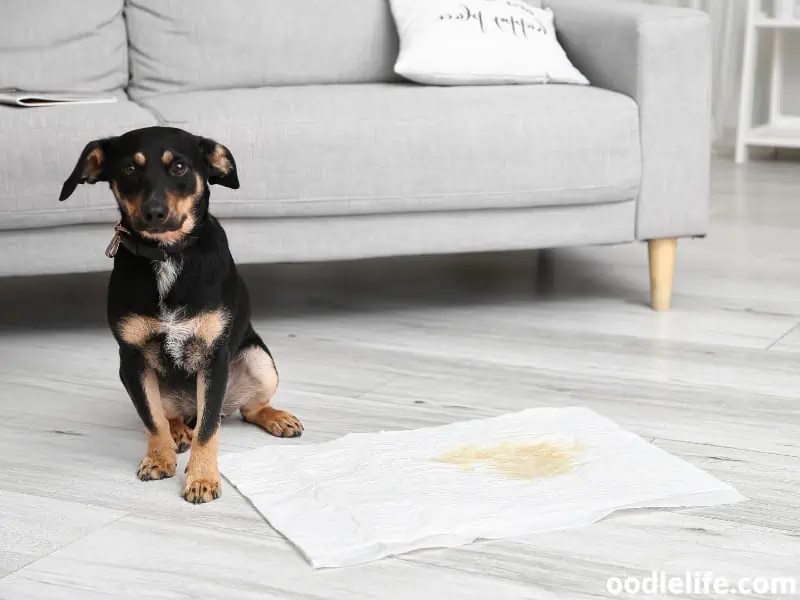
If your dog has a habit of marking their territory, try using a belly band to discourage the behavior. This band wraps around their waist, placing pressure on their bladder and signaling they shouldn’t pee.
Environmental Adjustments
Creating a comfortable, stress-free environment for your dog is essential. Ensure they have a clean, designated space for sleeping, away from any disturbing noises or distractions. Restricting access to their pee-soaked blanket helps break this habit.
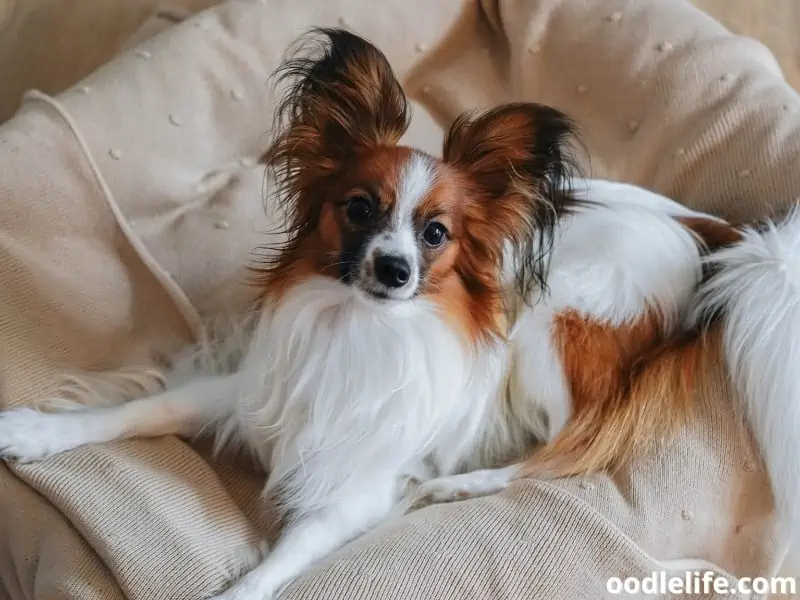
Consider providing your dog with regular routines and ample opportunities to go outside to eliminate. Establishing predictable bathroom breaks can encourage appropriate elimination behavior.
Seeking Veterinary Advice
If your dog continues to pee on their blanket despite your efforts, it’s essential to consult with a veterinarian. There could be an underlying medical issue, such as a UTI or bladder stones, that needs attention.
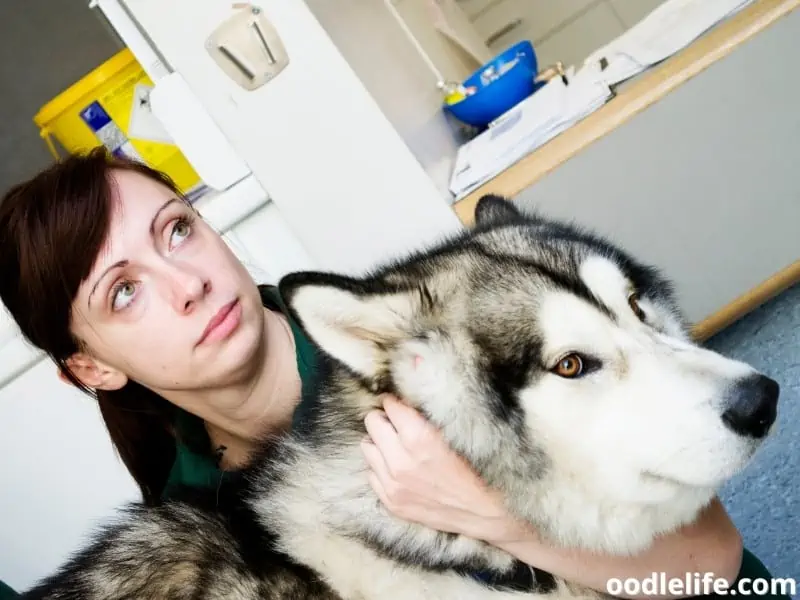
Veterinarians can also give advice on managing anxiety, incontinence, or other issues that might be causing your dog to pee on their blanket. Treating these problems can significantly improve your dog’s well-being and prevent further accidents.
Conclusion
In the end, our furry friends may have various reasons for peeing on their blankets. Medical conditions, territorial marking, and lack of training all play a role in this behavior.
To help our canine companions, it’s essential to first rule out any health issues by consulting with a veterinarian. After eliminating medical concerns, addressing the root cause and using positive reinforcement training can significantly improve the situation.
After all, our dogs deserve the best care and understanding so they can continue to be our loving, loyal tail-wagging buddies.